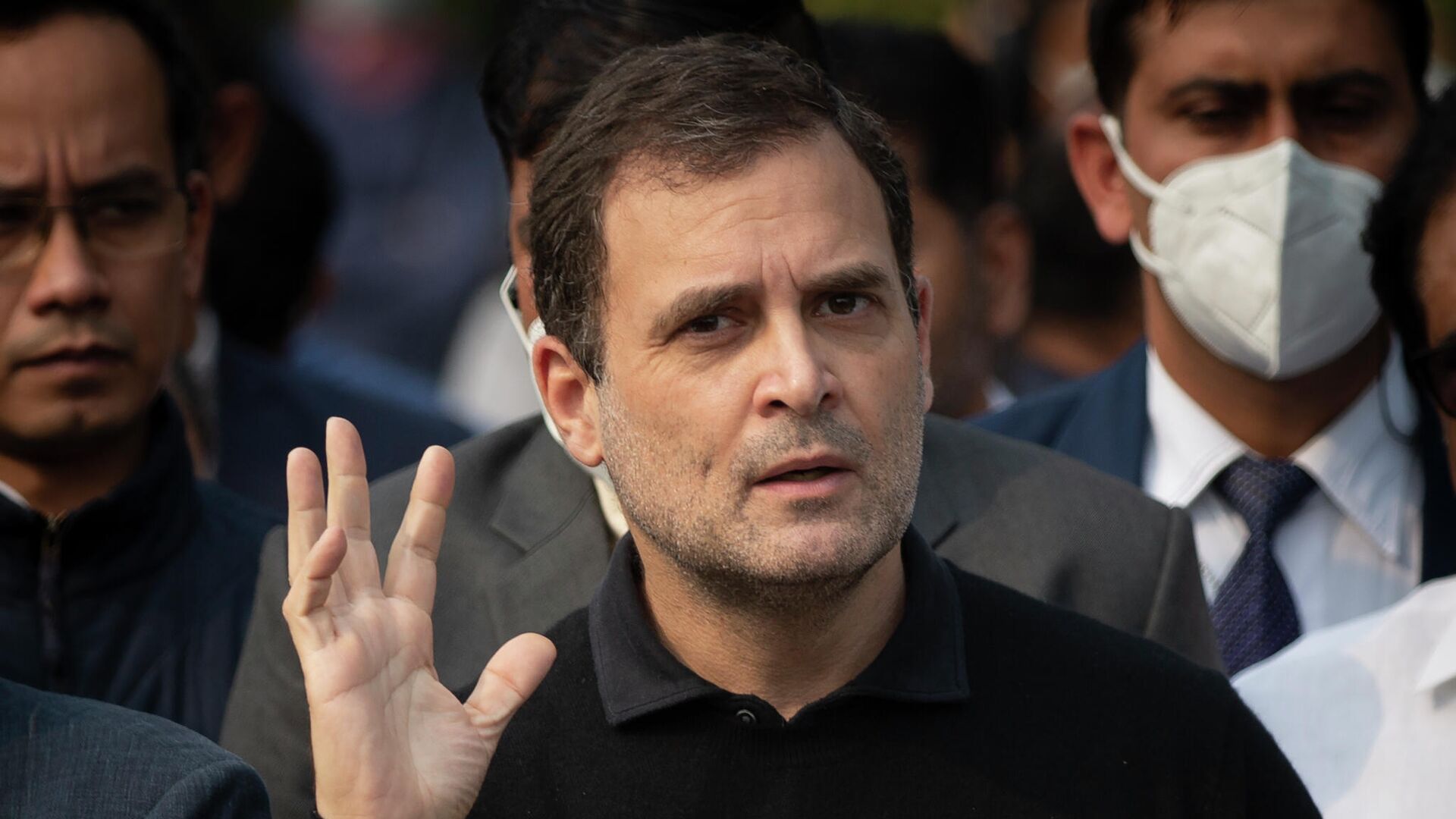BJP Hits Back at Kamal Haasan & Rahul Gandhi Over Criticism of Modi Gov't
15:15 02.01.2023 (Updated: 15:28 02.01.2023)

© AP Photo / Altaf Qadri
Subscribe
Rahul Gandhi is currently on a 3,570 km march from Kanyakumari to Srinagar which has been touted as Congress' largest public campaign since independence.
India's Bharatiya Janata Party (BJP) has rebutted actor-turned-politician Kamal Haasan and Congress Parliamentarian Rahul Gandhi after the duo's public conversation targetting the federal government over multiple issues, including the border stand-off with China.
BJP IT cell chief Amit Malviya called Gandhi a "washout politician" and highlighted Haasan's failures in his home state of Tamil Nadu.
"Kamal Haasan, well beyond his prime, who couldn't win an AC (assembly constituency) in TN (Tamil Nadu), interviewing Rahul Gandhi, a washout politician, struggling to bloom after decades in politics, who lost from family bastion of Amethi, is rich. Incidentally, both lost to BJP leaders," Malviya tweeted this afternoon.
BJP IT cell chief Amit Malviya called Gandhi a "washout politician" and highlighted Haasan's failures in his home state of Tamil Nadu.
"Kamal Haasan, well beyond his prime, who couldn't win an AC (assembly constituency) in TN (Tamil Nadu), interviewing Rahul Gandhi, a washout politician, struggling to bloom after decades in politics, who lost from family bastion of Amethi, is rich. Incidentally, both lost to BJP leaders," Malviya tweeted this afternoon.
What does it mean to fight for the truth?
— Congress (@INCIndia) January 2, 2023
Watch the unfiltered conversation between Shri @RahulGandhi & Shri @ikamalhaasan about the challenges India is facing & how the Bharat Jodo Yatra has become a revolution.#KamalWithRahul
Full video here: https://t.co/qUAm93C6pp pic.twitter.com/R81EqE9lnX
For his part, Haasan claimed he felt it necessary to raise his voice about the Modi government's policies.
"I felt it was my duty to speak about what was happening today... you walk with sweat and blood. You have seen history mentioning through your circle," Haasan is seen telling Gandhi in the video.
Gandhi, meanwhile, was heard slamming the central government on the matter of the recent border flare-up with China.
"We constantly hear about what is going on in the border. And the fact of the matter is China has taken about 2,000 km of our territory. Frankly, we have not said anything. The military has said they [China] are sitting in our territory."
Gandhi, meanwhile, was heard slamming the central government on the matter of the recent border flare-up with China.
"We constantly hear about what is going on in the border. And the fact of the matter is China has taken about 2,000 km of our territory. Frankly, we have not said anything. The military has said they [China] are sitting in our territory."
"The prime minister has said nobody has come. This sends a very clear message to China... and the message is: 'We can do what we want, and India will not respond, right?'"
India and China have been engaged in a military standoff in the northern Ladakh region since May 2020 with their latest flare-up coming last month in the northeastern state of Arunachal Pradesh.
Indian and Chinese troops got involved in a violent clash in the Tawang sector on December 9, which resulted in injuries to both sides, Defense Minister Rajnath Singh told parliament days after the scuffle.
This was the first major confrontation between the two Asian giants since the deadly 2020 Galwan clash in the Ladakh region in which 20 Indian and four Chinese soldiers died.
India and China share a 3,488 km border, spanning from Ladakh in the north to Arunachal Pradesh state in India's northeast.
The Line of Actual Control (LAC), as the border is known in official parlance, remains demarcated between the two countries. This has led to transgressions and minor clashes at regular intervals due to differing perceptions of the border by the two armies.

